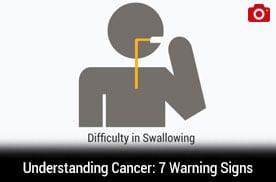How to Take Care of Your Heart – Dr. JC Mohan
The onset of winters is welcomed with warmth. Though it’s a season of cold and flu, it is also the time when the highest number of heart diseases gets diagnosed. Health experts say that almost 50 per cent more heart attacks are reported in winters. The nature of heart attacks suffered during winters is more severe as compared to those occurring at other times of the year. The main reason for this could be the exposure to cold, which leads to narrowing of blood vessels resulting in blockage of arteries that triggers a heart attack.
In winters, the blood pressure is also higher, the blood becomes thicker and bad cholesterol levels rise. Less daylight in winter also causes changes in the hormone cortisol, which can lower the threshold of a heart attack. All these factors lead to higher incidences of heart attacks in winter. Mornings are particularly dangerous as there is a 40 per cent increased risk of heart attacks associated with early morning surges in blood pressure. The severe cold also brings along cases of acute asthma, joint pains and skin and hair problems.
Doctors advise wearing warm clothes and doing light exercises indoors to avoid falling sick. Binging on too much food also must be avoided. Eating right is the key to reduce or even eliminate some heart disease risk factors. One needs to maintain a healthy weight, reduce bad cholesterol, lower blood pressure and blood sugar to keep the heart healthy. Also, increase the intake of fruits and vegetables; cut down on fat and high-calorie items; avoid red meat; eat small but frequent meals, avoid junk food, reduce salt and most importantly, exercise regularly.
Why winter predisposes one to heart ailments:
• The changed daylight to dark hour ratio alters the hormone cortisol’s levels. This is one of the possible reasons for increase in heart attacks.
• The low temperature leads to tightening of blood vessels, reducing blood supply to the heart, thus aggravating angina and blockage of arteries, leading to heart attack.
• The oxygen demand of the heart increases because the heart has to work harder to keep the body warm.
• The early morning surge in blood pressure is an important reason for heart attacks being more common at that time, as shift of activities to morning hours leads to a change in the circadian rhythm (body clock), leading to an increase in heart rate, blood pressure and cortisol levels.
• The risk does not necessarily decrease if one migrates to relatively warmer places. It has been seen that people predisposed to heart attacks can get cardiac problems even if they migrate to relatively warmer places during the colder months. They can catch other infections like influenza which prevail in warmer places. The inflammation and swelling caused by these diseases can spread to the arteries and lead to heart attacks. For people over 65 years of age, diabetics and cardiac patients, influenza vaccine should never be taken without medical supervision.













Thanks for sharing this post for readers.The nature of heart attacks suffered during winters is more severe as compared to those occurring at other times of the year. The main reason for this could be the exposure to cold, which leads to narrowing of blood vessels resulting in blockage of arteries that triggers a heart attack.